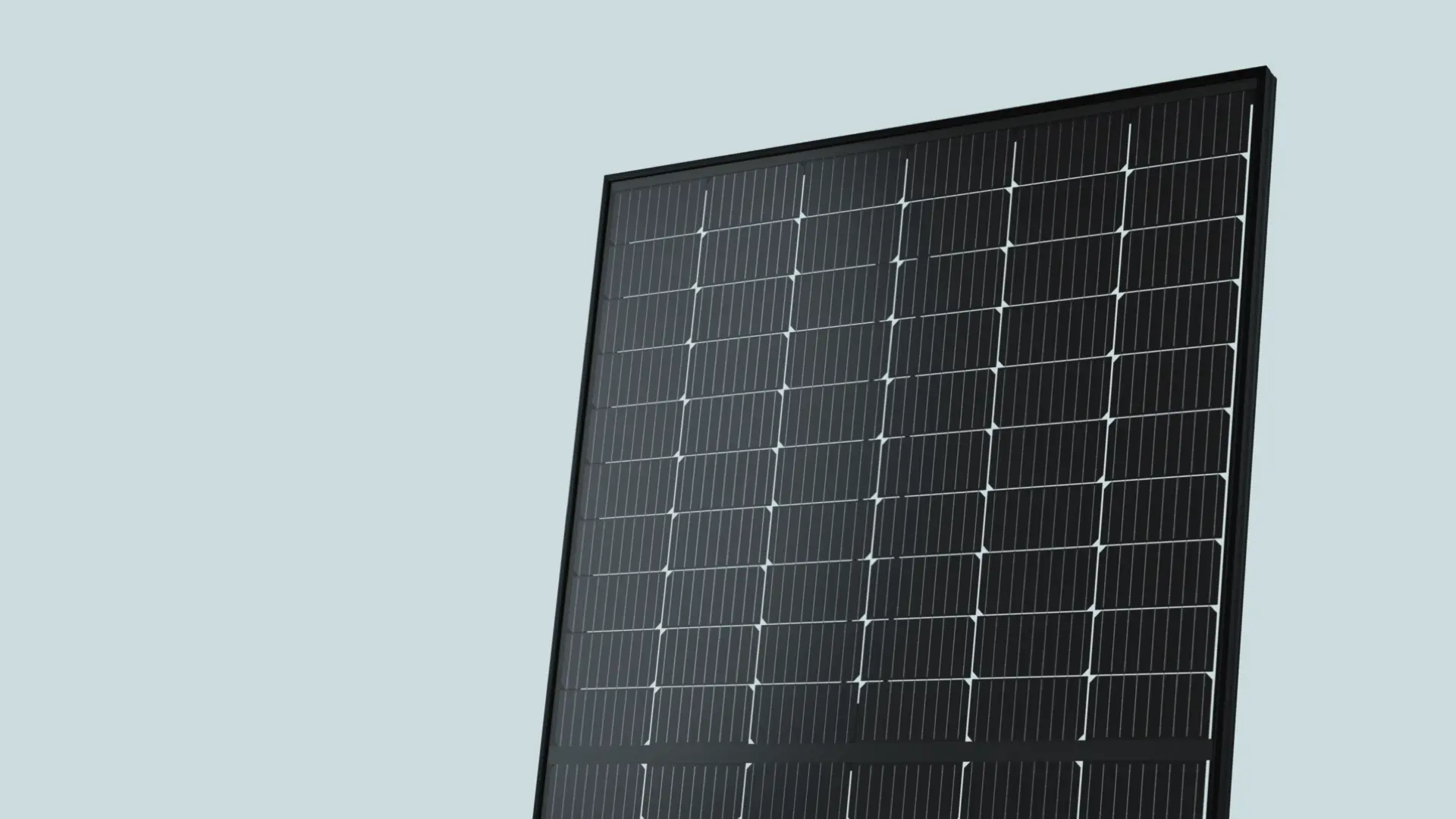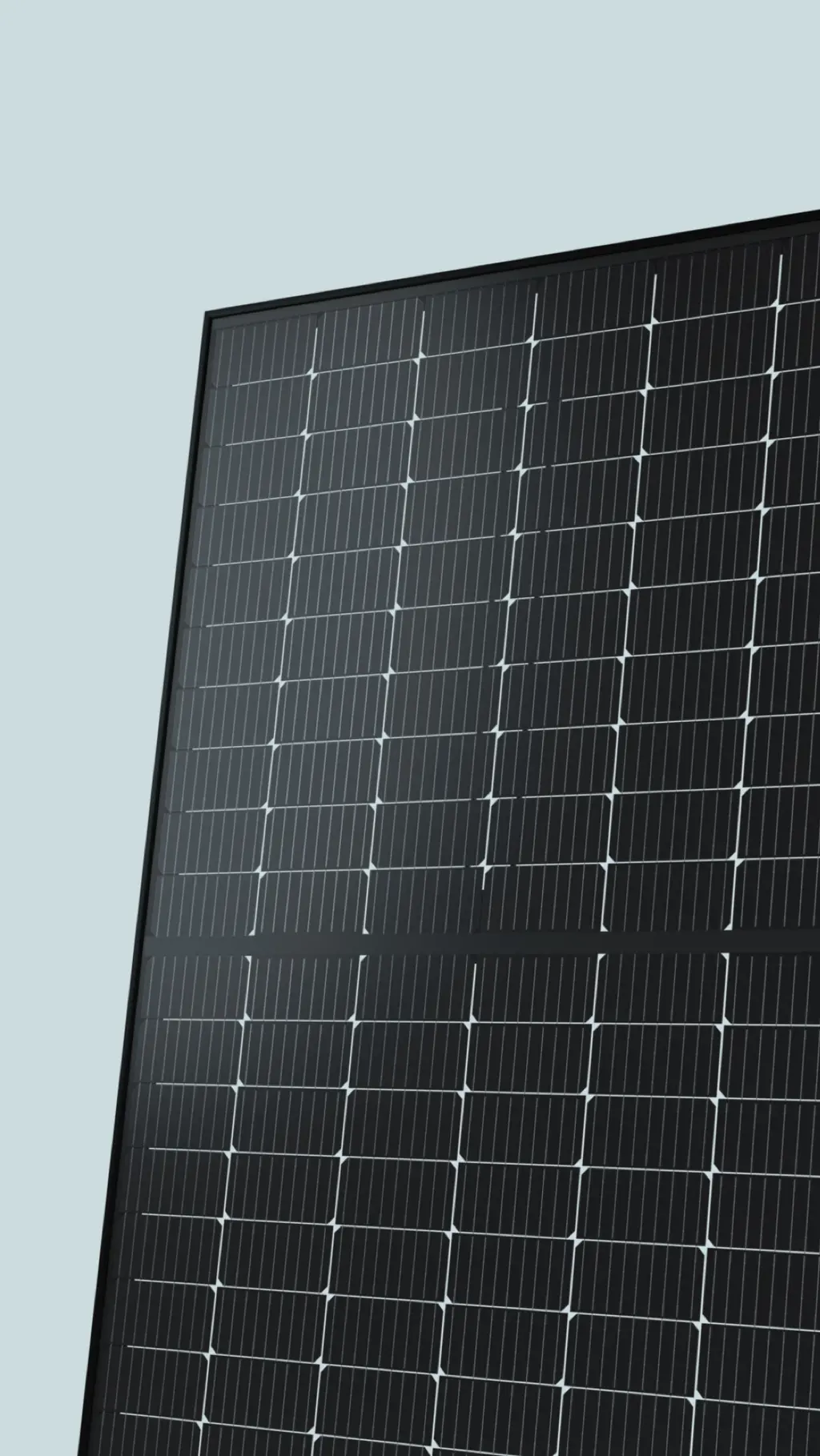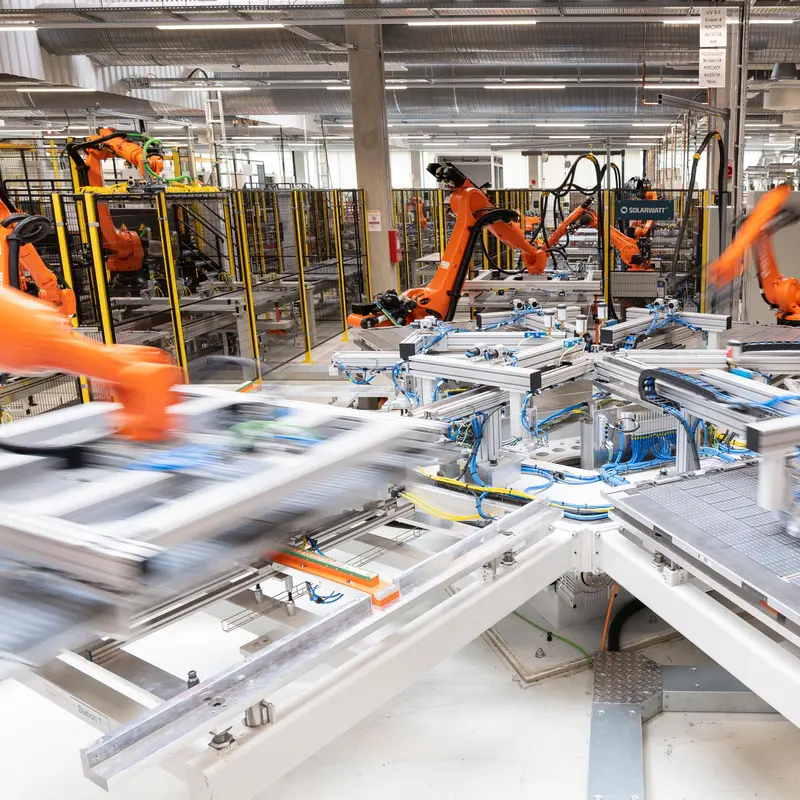
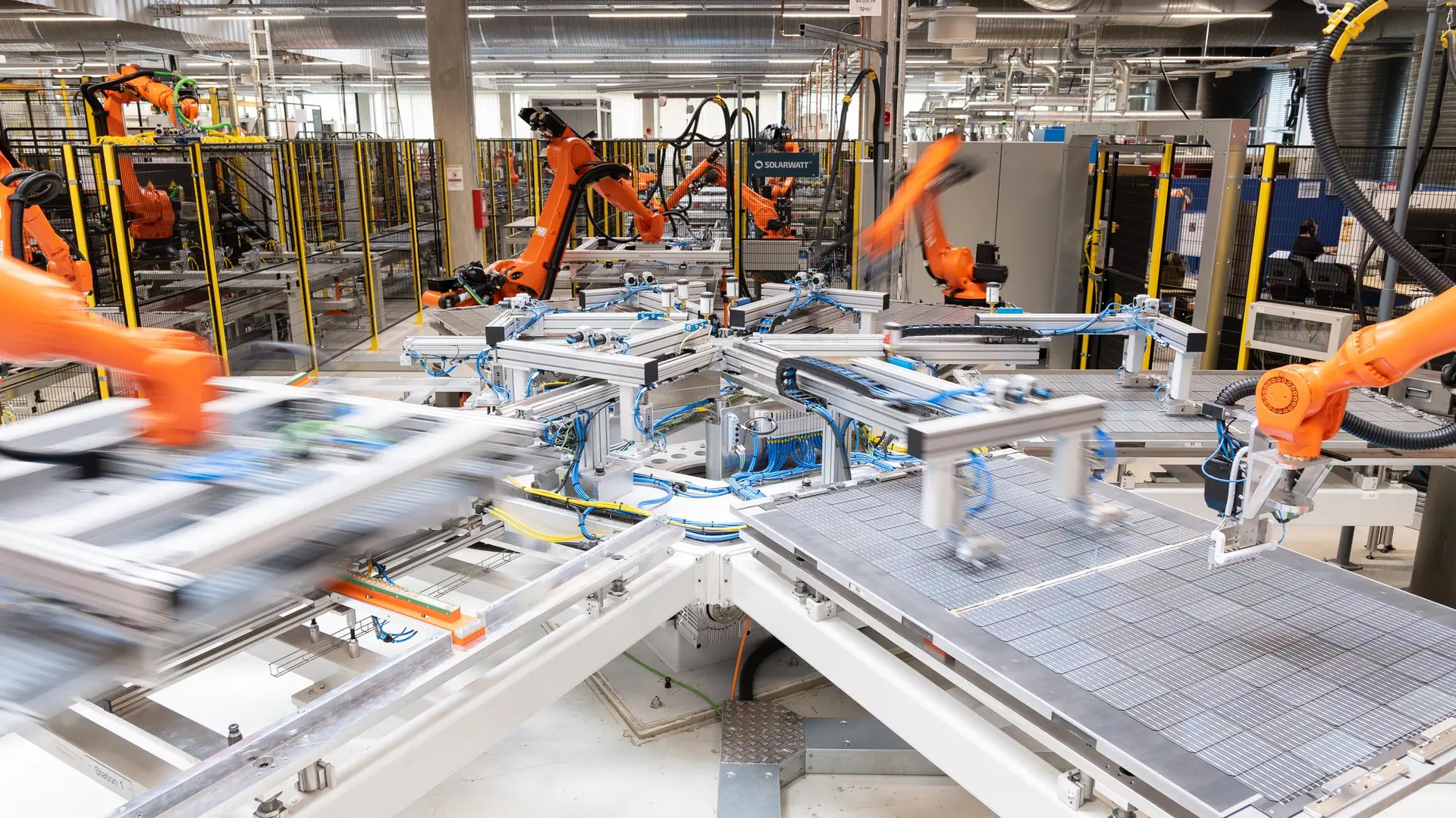
Cradle to Cradle - The standard for sustainable products.
How we paved the way for a better tomorrow.
Photovoltaic systems are obviously an environmentally friendly source of energy. But here at Solarwatt, we care not just that our panels generate sustainable energy themselves, but that they are also manufactured in a sustainable way.
That's why we had our Panel vision GM 3.0 series (*formerly known as panel vision H series) panel products, and Vision 60M and EasyIn generation modules tested by the independent Cradle to Cradle Products Innovation Institute (C2CPII) and its German partner agency, EPEA.
The result: We were awarded the silver level Cradle to Cradle Certification® for our extremely durable glass-glass modules. Only three photovoltaic manufacturers have been granted certification worldwide. In Germany, we are the first, and so far, we stand alone.
Silver certification
Silver certification
The Panel vision GM 3.0 series panel and the modules of the vision 60M and EasyIn series were awarded the silver level Cradle to Cradle Certification®.
| Criteria | Evaluation |
|---|---|
| Material health | Silver |
| Recyclability | Silver |
| Energy Management and CO2 emissions | Gold |
| Water management | Silver |
| Social responsibility | Gold |
| Overall certification level | Silver |
We invest in clean energy every day.
A C2C certification® must be renewed every two years to keep up with current developments and increasing requirements. Annika Beck, Corporate Social Responsibility Manager at Solarwatt, oversees this and many other sustainability issues.
The work involved in maintaining the C2C Certification® is only a small part of the broad range of work on sustainability that goes on at Solarwatt.
We are continuing on our journey toward a better tomorrow – with holistically designed products and services based around the natural cycle.
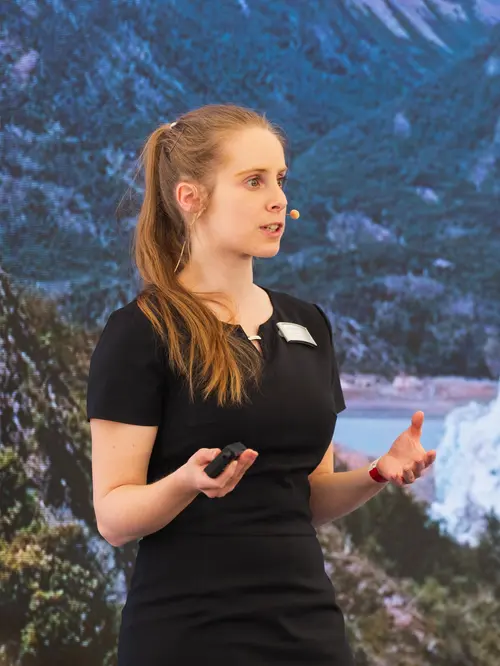
What are the criteria for C2C assessment?
The basic idea of C2C Certification® is to examine the entire life cycle of a product and evaluate the product based on its environmental and social performance. This leads to the following questions:
· What is the source of the energy used for manufacturing?
· What materials are used and how are they obtained?
· How can the materials be reused at the end of the product life cycle?
The goal is to create sustainable and healthy products which have a positive impact on people and the environment. The categories examined include material health, recyclability, energy management and CO₂ emissions, water management, and social responsibility.
As anticipated, most of the technical processes taken under the microscope cannot fully comply the circular economy ideal. That’s why the certificates are awarded in basic, bronze, silver, gold and platinum levels.
Evaluation categories
In the materials assessment, the chemical components of a product are examined and rated according to a traffic light model (ABC-X rating), which ranges from “recommended” to “banned”. The hazardousness of the materials to humans and the environment plays a central role here, as does exposure during use and the recyclability of the materials used. The certification is based around the principle of keeping the risk posed by the materials used to an absolute minimum.
A recyclability score is calculated based on the components identified, which makes it possible to assess the recyclability of the materials. Product design is also factored into this assessment. This means that products must be designed in such a way that they can be repaired and reused without difficulty.
In line with our ISO 50001 energy management system, we record energy data on site. We also record product-specific CO₂ emissions at the production site, taking into account the effects of any CO₂ compensation. In our case, this comes in the form of a gold standard-certified climate protection project.
In the water management assessment, the local and company-specific water situation is analysed and any water-related problems identified. A water audit is also carried out at the production site.
Aside from environmental and ecological aspects, a social responsibility assessment is also performed. Solarwatt carried out a comprehensive self-assessment using the Global Compact Self Assessment Tool. The UN Global Compact comprises 10 principles in the areas of human rights, labour standards, the environment, and corruption prevention. We also referred to the Social Hotspot Database to identify social risks in the suppliers’ countries and draw up improvement strategies and actions to be taken. Solarwatt’s social engagement projects have also been evaluated.
A win for everyone.
The more complex the product, the more components and materials are used, the more difficult it becomes to achieve a high certification level. Those who come out on top must score equally well in all categories. Similarly, the lowest certification level achieved in any category determines the overall certification. So if a company achieves “basic” in one category, they can only achieve a maximum of “basic” in the overall rating.
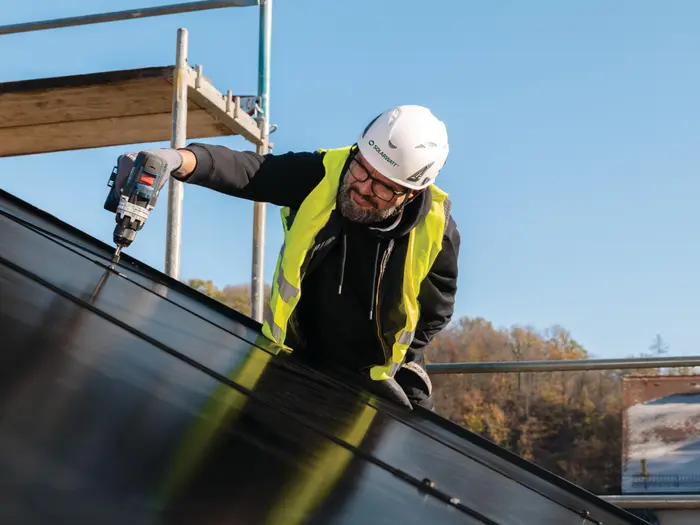
The team led by Annika Beck, Corporate Social Responsibility Manager, made Solarwatt the first solar module manufacturer in Germany to apply for C2C Certification®. The result was an excellent silver level under the 3.1 testing standard. There are only two other photovoltaic producers worldwide with active C2C Certificates®.
“We are proud to have been awarded this comprehensive and demanding certification at such a high level. This is a big step towards our goal of setting up our company and product range to be sustainable across the board,” says Annika Beck.
